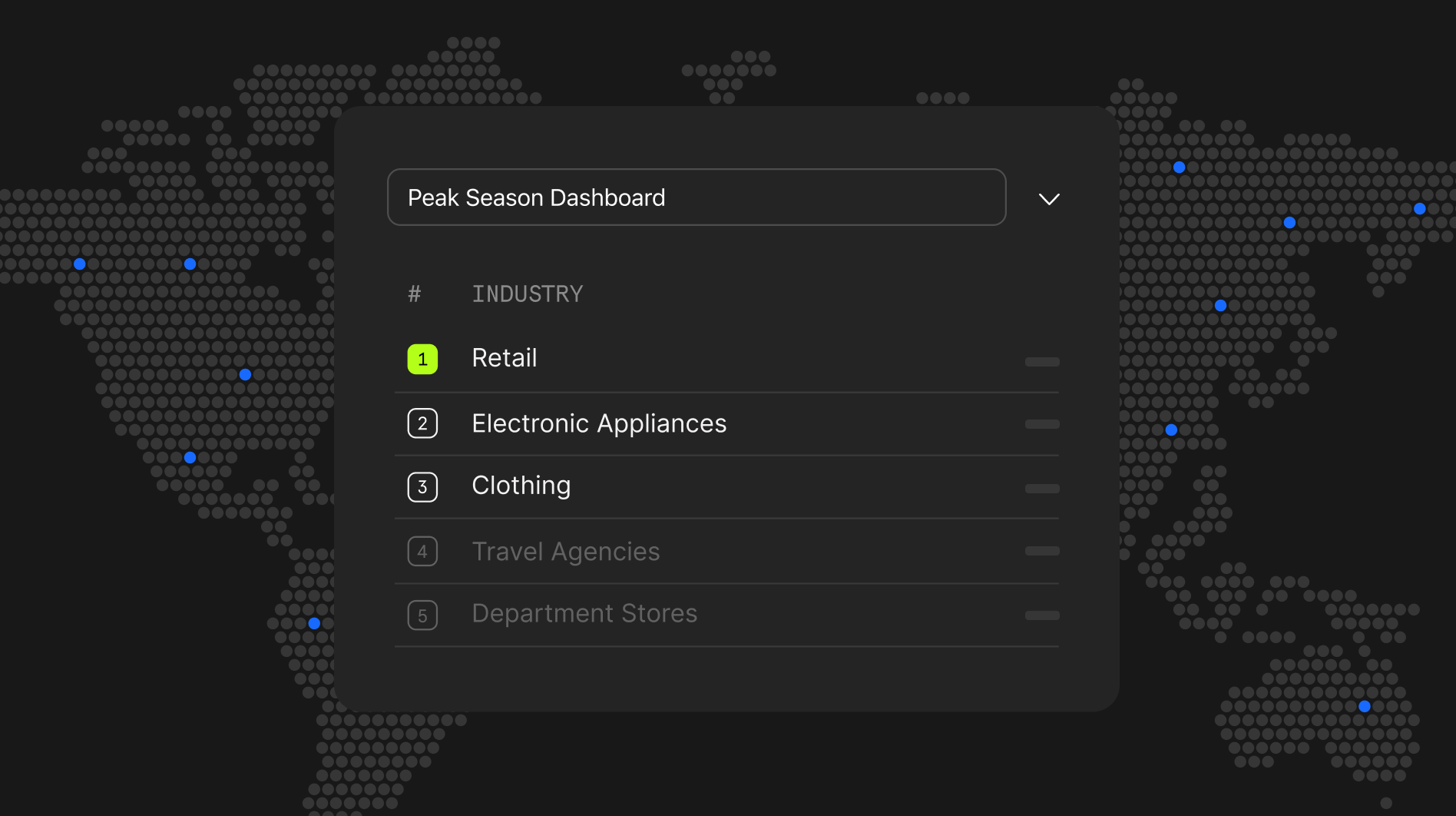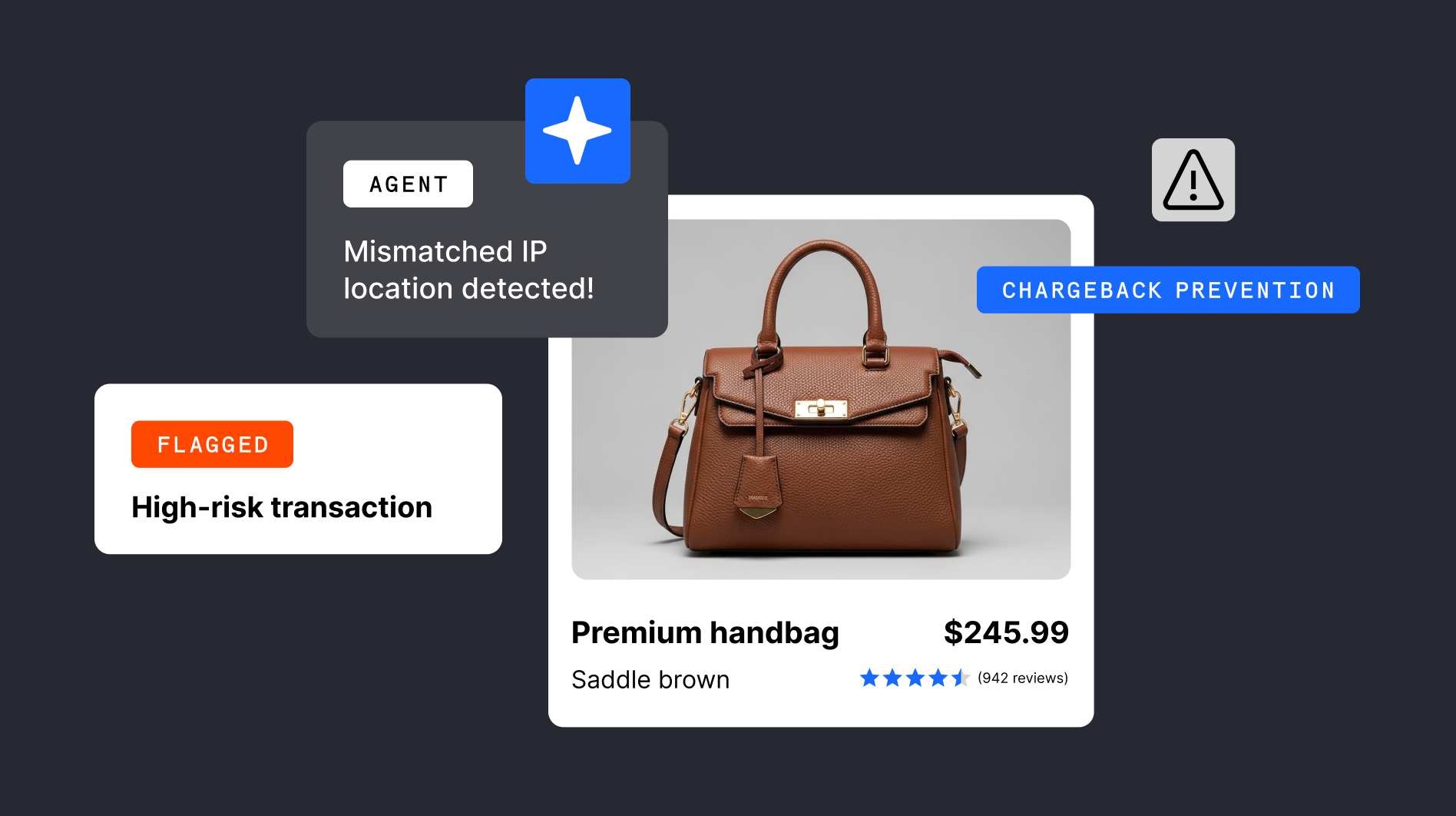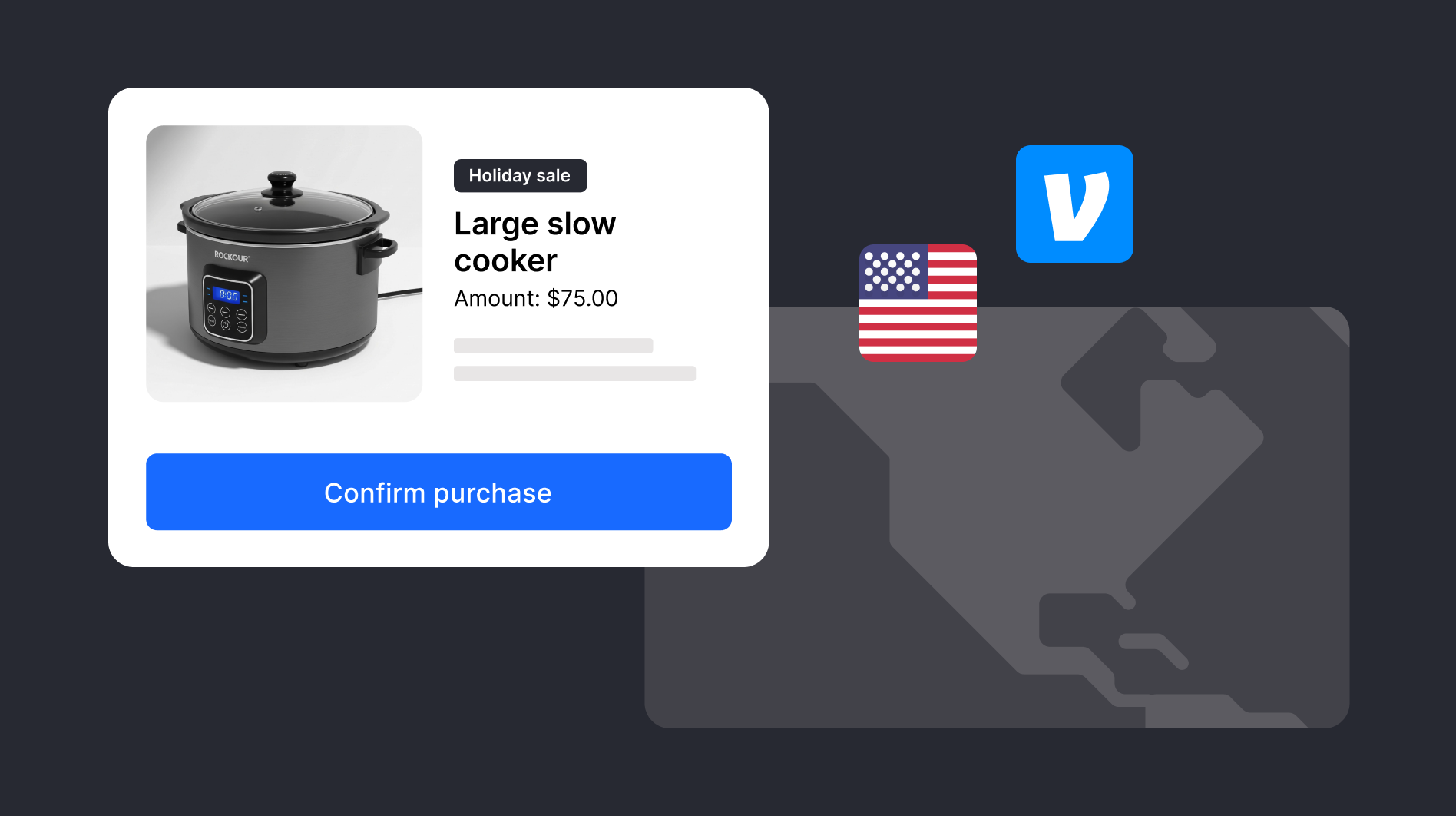A payment service provider (PSP) is a critical partner to any business selling online. And, at first glance, all payment providers look to offer the same service: allowing a business to accept a payment from its customers. However, that couldn't be further from the truth. When you scratch below the surface, it soon becomes apparent that not all payment providers are created equal.
The payments ecosystem is incredibly diverse and has undergone rapid development in recent years. Today, it's populated by decades-old gateways running on legacy technology, niche players that service particular markets or segments, and modern, full-stack providers explicitly built to power digital commerce.
Picking the right PSP to power your payments and meet your objectives is vital. Get it wrong, and your business could lose revenue, see its costs inflate, miss out on growth opportunities and fall victim to fraud.
Get it right, and you'll have a partner that empowers you to achieve your business ambitions.
Learn more: Building a modular payment infrastructure
Factors to consider when choosing a payment provider
In order to choose the right PSP for your business, you need to examine how each providers’ features and functions will help you achieve your objectives. Whether you need to improve your fraud detection capabilities or more support for everyday tasks, it’s worth comparing several PSPs to find the most suitable one for your needs.
So if you're currently considering bringing onboard a new payment service provider, here are the qualities you should look for.
Read more: Should you use multiple payment service providers?
More sales through different payment methods
There's no one-size-fits-all approach to payments, especially when selling globally. Payment preferences differ starkly from market to market — even in regions considered homogenous, like Europe.
Offering the right payment methods to the right customer at the right time is imperative. Especially when you consider that 60% of consumers will abandon their cart if they cannot use their preferred method of payment. However, it's not always so straightforward. Depending on your PSPs capabilities and set-up, you may need to contract and integrate with every payment method you wish to offer — often at great cost and complexity.
An ideal online payment solution lets you avoid this issue by connecting to all major card schemes and alternative payment methods through a single API integration. It should also support geo-localization, which displays the most relevant alternative payment methods to customers based on their location, increasing the speed and efficiency of the overall payment process. At the same time, it can be of enormous benefit if your PSP has on-the-ground payment experts that'll partner with you to find ways to optimize how you use payment methods to capture more revenues.
Improves approval ratio
An approval ratio represents the proportion of your transactions approved by issuing banks (your customer’s bank). In other words, if 95 out of 100 of your transactions are approved and successfully processed, your approval ratio would be 95%. Depending on the volumes your business processes, even a small uplift could result in a significant revenue increase.
Optimizing approval rates is highly complex. Most businesses will be unaware of what happens after their customer presses pay. They might see that it was approved or that it failed. But they have no idea why. This is because not all payment providers can provide the data and support needed to uncover why payments fail. In fact, 41% of businesses tell us that they get no actionable insights from their payments data.
To find out whether a payment provider can help your business optimize its approval rates, ask whether:
- It owns and operates all its technology stack or whether there are integrations with third-parties
- It can provide complete access to your payments data, end-to-end
- It can offer different ways to view and consume your payment data
- It has teams that can support you to understand your payment data and uncover areas for optimization
- It's a principal member and a direct acquirer of all major card brands, including Visa, MasterCard, American Express, Diners/Discover and UnionPay
- It has deep relationships with all the major issuing banks
Reduces fraud and chargeback risks
Fraud is every online merchant’s nightmare. It's a common cause of chargebacks, which result in billions of dollars of lost revenue for merchants each year.
You need a provider that provides an end-to-end fraud monitoring and management solution that keeps your transactions secure. They must offer the latest tools, such as intelligent routing logic and 3D Secure 2.0.
A payments provider should also be adaptable to your business’s particular needs. After all, no two businesses have the same risk tolerance. You need a solution that permits you to strike the right balance between payment fraud protection and approval rates.
Simple and intuitive platform for customers
A checkout process that has unnecessary or overly-complicated steps reduces the likelihood of shoppers completing the payment process. You need to offer a great user experience on your payment page. A simple and intuitive payment platform is the key to minimizing shopping cart abandonment and growing your revenue.
Your payment provider should provide you with the tools and expertise to support you in building a great checkout experience. Features to consider are the ability to:
- Enable customers to checkout directly on your app or website with no redirection to a separate page.
- Easily customize the look and feel of the checkout and change what payment methods you present to customers.
- Take your checkout to other places online, including social channels as social shopping becomes increasingly commonplace.
Easy and seamless integration
Integration is a critical step in the relationship between a merchant and a payments provider. It's that first moment of truth when the vision sold starts to become a reality. And it lays the foundation for the success of the partnership. But if your provider is using legacy technology it can be a process marred with complexity and frustration.
Find a provider whose solution only requires you to build one integration into an API. And one that provides a personalized service to guide you through the process and to ensure the solution meets your unique requirements.
Provides a secure payment process for transaction data
To provide security and protection for cardholder data during a transaction, The Payment Card Industry Data Security Standard (PCI DSS) enforces a baseline set of requirements for any party wishing to process, store or transmit this data.
Your business may be PCI Compliant, in which case this might not be a significant consideration. However, many businesses aren't and wish to outsource this. If you're in the latter category, make sure you use a provider that's Level One PCI Compliant. These can legally store card data on your behalf at the highest compliance level.
Has a transparent pricing structure
Cost is an obvious consideration when choosing the right payment provider for your business. Many payment processing companies offer a 'blended' pricing model. This sees them take all the different fees incurred when processing a payment and lump them into one overall rate. These rates are set for every transaction, no matter what type of card is used to make the purchase and the associated interchange rate.
While this method may provide a degree of simplicity and convenience, it comes at a price and is only helpful for smaller businesses that don’t operate at scale. The lack of transparency also means that you can never really be sure you're paying the best possible rate.
That's why you probably want to find a provider that uses Interchange pricing. With Interchange, your payment processor will separate each fee you're charged and add a premium for their gateway and/or acquirer and processor capabilities. With this transparency and flexibility, you get the ability to optimize the price you're paying per transaction. And with the right partner, this leads to substantial cost savings, especially for enterprise businesses.
Gives you the tools to take immediate actions on transactions
As an online merchant, it's essential to have tools at your disposal to manage and monitor your payments in real-time. Make sure your provider's dashboard offers the visibility and granularity you need to track and control your transactions as they come in, allowing you to take actions such as refunding your customers immediately or deciding when to ship specific orders.
Excellent customer support
If you run into a problem with your payment processing system, you want to be able to receive support to resolve the issue and avoid potential loss of revenue. This support should go a step further and come as ongoing consultancy that always considers your wider strategy and your business goals. You don't want to be met with an automated online tool or recorded voice message, which some providers offer their merchants.
It's about finding a payment provider that can focus on your needs as a business to design a unique payments solution for your business.
Ideally, you should look for a provider that offers 24/7 support, so you know that, if there’s an issue that could have serious repercussions for your business, someone is on hand to help you resolve it promptly. You don’t want to experience a sudden and unexpected drop in acceptance rates and have to wait several hours before a phone line opens.
Continuous innovation
Your business isn't static; so your payment provider shouldn't be either. In a world where optimized payments — both in and out of the businesses — are creating a competitive advantage, you need a provider that'll ensure you're getting access to flexible technology and the latest payment methods before your competitors.
Switching on these new tools should be straightforward, without creating any additional complexity or cost. Allowing your business to create an end-to-end payments solution that can power its growth.
Easy onboarding and setup
Often, legacy PSPs rely on outdated technology, which makes them complicated and time-consuming to set up, not to mention the extensive training required to actually use the system effectively.
Look for a modern, cloud-based system instead. With these, set up and onboarding can be completed rapidly through the internet, usually within minutes. What’s more, they’re intuitive and easy to get to grips with.
Offers recurring billing
If your business offers monthly payment plans to its customers, you need a PSP that offers recurring billing as a feature. For example, if you’re a subscription streaming service or recipe box company, you can set up recurring billing to take periodic payments from your customers’ credit card or bank account without the need for manual intervention each time. This is hugely beneficial for your business, allowing you to generate a stable cash flow while minimizing late payments, and build a loyal customer base while giving yourself more time to spend on other important tasks.
Is scalable
It’s vital that whichever payment system you choose has the capability to scale as your business grows. But what does that mean in practice? It means that if, for example, you plan to expand into international markets, your PSP can support multiple currencies and different payment types preferred in each region. It should also be able to handle the processing of an increased volume of transactions as your customer base grows, and have robust fraud detection to protect against the higher risk of criminal activity you may be exposed to.
Offers hosted / API payment gateways
Depending on your preferences, you may or may not want to use a hosted gateway, which acts as a secure bridge between the customer’s payment method and the merchant’s payment processing system. The advantage of this is that, because the payment is processed by a third-party instead of directly on your website, you don’t handle or store any of the customer’s sensitive information. However, the additional step of redirecting your customer to an external site does increase the time it takes to complete the transaction, Additionally, you don’t have control over the process and some customers may not trust a third-party payment page. Nevertheless, it’s good to have the option of using a hosted gateway if it aligns with your business goals.
Offers data insights and reporting
Businesses should be constantly looking to improve their payments experience. But without valuable transaction data, you’ll be operating in the dark. Look for a PSP with excellent data and reporting functionality. In order to make the most of it, it should be able to turn the wealth of data your business generates into a useful format and detailed reports that allow you to draw actionable insights. It should also be easy to integrate into your current systems.
Why choose Checkout.com as your payment service provider
If you’re looking for a PSP that includes all these functions and more, look no further than Checkout.com.
We support you as you scale with multiple payment methods, robust fraud detection, and excellent data and reporting capabilities. It’s easy to set up and integrate through one API, and we offer 24/7 support so you’re never left to fend for yourself if you experience an issue.
If Checkout.com sounds like the PSP for your business, you can contact our sales team or find out more information about our product on our website.
Learn more: Payment Methods - Direct integration vs PSP










.png)




